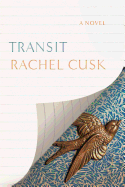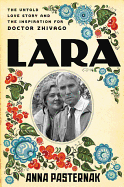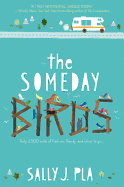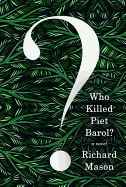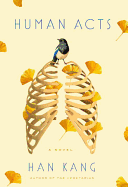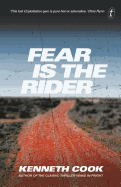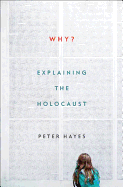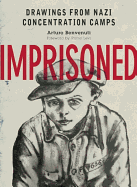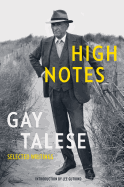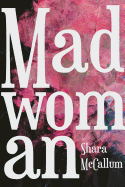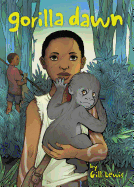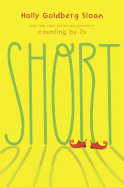Friday, February 3, 2017
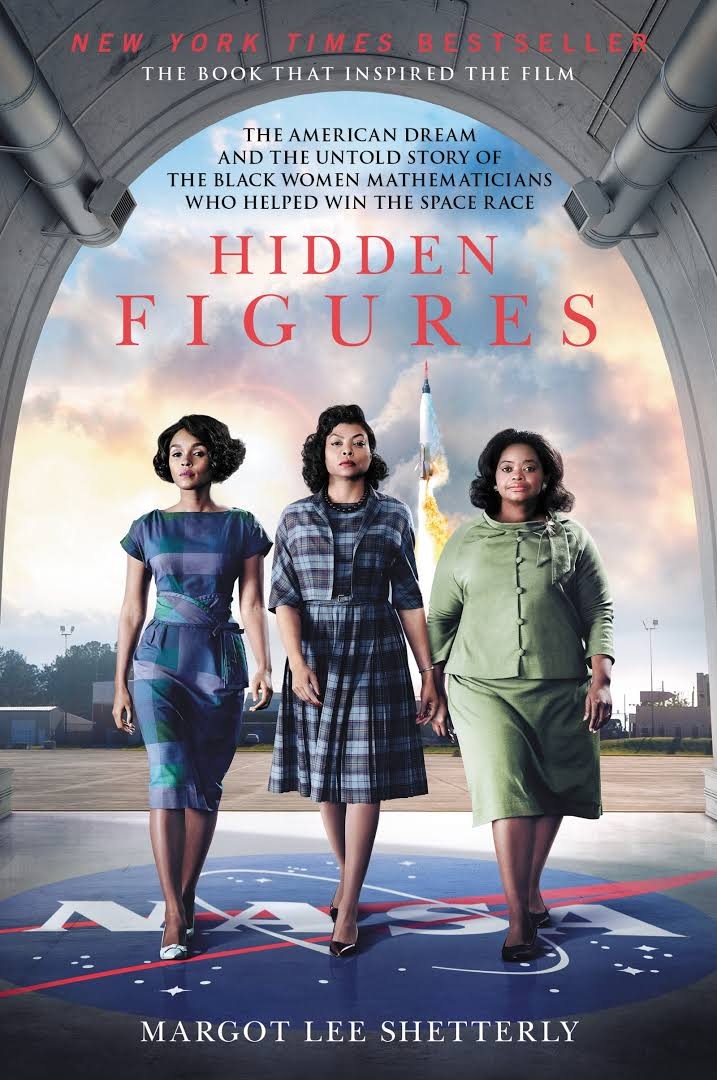 On January 6, the film adaptation of Margot Lee Shetterly's Hidden Figures (Morrow, $15.99) hit box offices with an (ahem) astronomical impact. With superb performances by Taraji P. Henson as Katherine Johnson, Octavia Spencer as Dorothy Vaughan, and Janelle Monáe as Mary Jackson, the true story of African American women whose calculations got John Glenn and other astronauts into space and back down again safely has earned some long overdue recognition. These brilliant mathematicians crunched incredible numbers while facing the cruelties of Jim Crow segregation; without them, the space race would have looked far different.
On January 6, the film adaptation of Margot Lee Shetterly's Hidden Figures (Morrow, $15.99) hit box offices with an (ahem) astronomical impact. With superb performances by Taraji P. Henson as Katherine Johnson, Octavia Spencer as Dorothy Vaughan, and Janelle Monáe as Mary Jackson, the true story of African American women whose calculations got John Glenn and other astronauts into space and back down again safely has earned some long overdue recognition. These brilliant mathematicians crunched incredible numbers while facing the cruelties of Jim Crow segregation; without them, the space race would have looked far different.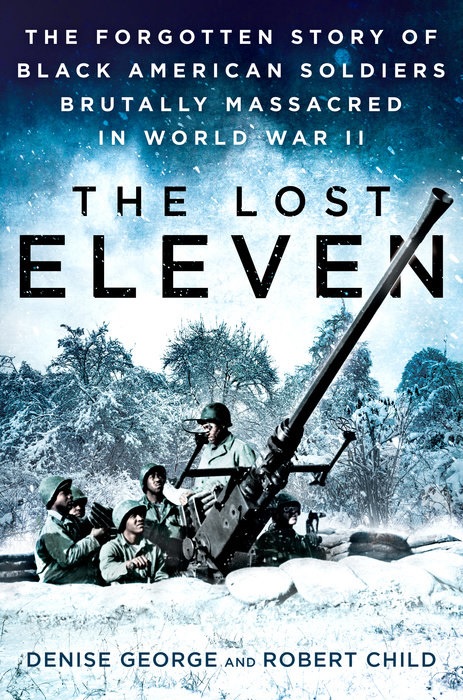 Bravery in the face of discrimination can also be seen in the black soldiers of the 333rd Field Artillery Battalion during World War II. The Wereth 11, as they have come to be called, mastered the 155 mm howitzer for vital fire support during the Battle of the Bulge. However, as Denise George and Robert Child report in The Lost Eleven (NAL, $28), these men were omitted from U.S. casualty lists after they were captured, tortured and executed by German soldiers in December 1944, leaving them nearly forgotten to history.
Bravery in the face of discrimination can also be seen in the black soldiers of the 333rd Field Artillery Battalion during World War II. The Wereth 11, as they have come to be called, mastered the 155 mm howitzer for vital fire support during the Battle of the Bulge. However, as Denise George and Robert Child report in The Lost Eleven (NAL, $28), these men were omitted from U.S. casualty lists after they were captured, tortured and executed by German soldiers in December 1944, leaving them nearly forgotten to history.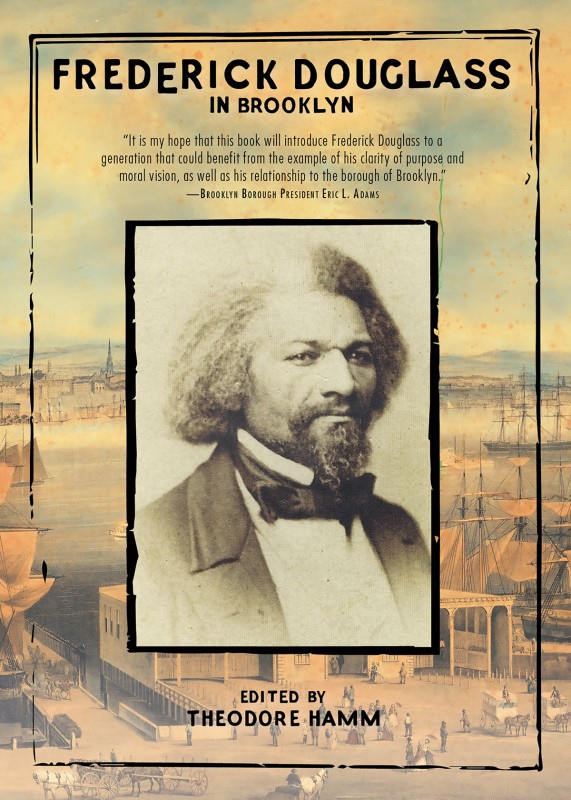 Such disregard for their sacrifice is not only an example of pervasive American racism, but also a flagrant betrayal of the stipulation Frederick Douglass gave for African American enlistment nearly 80 years earlier, during the Civil War: "the same rights and protection guaranteed to them as to other men who fight [U.S.] battles." Our review of Frederick Douglass in Brooklyn (Akashic, $15.95), edited by Theodore Hamm, points out how the orator "presciently touched upon social issues of division and assimilation still relevant in the 21st century."
Such disregard for their sacrifice is not only an example of pervasive American racism, but also a flagrant betrayal of the stipulation Frederick Douglass gave for African American enlistment nearly 80 years earlier, during the Civil War: "the same rights and protection guaranteed to them as to other men who fight [U.S.] battles." Our review of Frederick Douglass in Brooklyn (Akashic, $15.95), edited by Theodore Hamm, points out how the orator "presciently touched upon social issues of division and assimilation still relevant in the 21st century."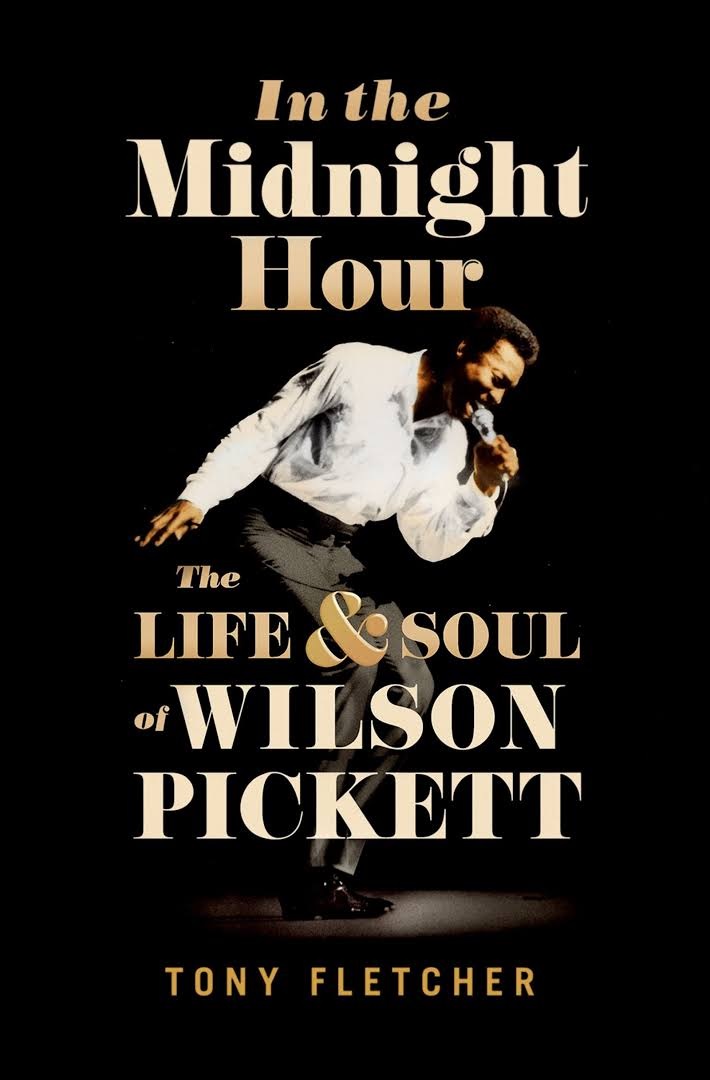 And readers will surely appreciate music journalist Tony Fletcher's In the Midnight Hour (Oxford, $27.95), a biography of Rock and Roll Hall of Famer "Wicked" Wilson Pickett, "a man who helped put soul music on the map." These represent just a few important figures in history both black and American. --Dave Wheeler, associate editor, Shelf Awareness
And readers will surely appreciate music journalist Tony Fletcher's In the Midnight Hour (Oxford, $27.95), a biography of Rock and Roll Hall of Famer "Wicked" Wilson Pickett, "a man who helped put soul music on the map." These represent just a few important figures in history both black and American. --Dave Wheeler, associate editor, Shelf Awareness
Transit
by Rachel Cusk
Rachel Cusk's Transit is the second in a trilogy, following her 2015 novel, Outline. It's a cool, deliberate book that relies on extended conversations and its narrator's sharp eye to explore themes like fact and fiction, fate and free will. Transit moves its divorced English protagonist Faye from the sweltering Athens of Outline to autumnal London, where she's recently purchased a decaying flat she can barely afford in an upscale neighborhood. Plunging herself deeper into debt, she embarks on a costly renovation project whose disruption draws her into a bizarre conflict with the aged couple living below.
Though the novel is mostly devoid of dramatic incident, save for a brief, explosive episode at a hair stylist's shop, Cusk places Faye in intriguing settings that allow verbally dexterous characters ample freedom to unburden themselves. One of the more striking occasions is a panel where a pair of authors who've moved like conjoined twins on the literary circuit expound on sharply contrasting accounts of their troubled childhoods. One of them, Julian, describes how writing his book had been "both a torment and a relief, like pulling a knife out of his own chest," while the Knausgaardian product of his counterpart, Louis, was "just the low-lying truth of his ordinary existence," a faint echo of Cusk's style.
In both Outline and Transit, Rachel Cusk has gambled that there's an audience for a novel that emphasizes ideas over action and rests its claim to our attention on the consistent keenness of its insights into our human relationships. There's certainly enough of those qualities here to entice readers into discovering what awaits in the final volume of the trilogy. --Harvey Freedenberg, attorney and freelance reviewer
Discover: The second volume of a trilogy, Rachel Cusk's Transit follows the narrator back to London for more intriguing encounters.
Who Killed Piet Barol?
by Richard Mason
Luck has a way of following Piet Barol wherever he goes--until now. The young libertine introduced in History of a Pleasure Seeker has reinvented himself as the French Vicomte Pierre de Barol, a skilled furniture maker in South Africa. Having aged several years, he is softer in the middle and his wife, Stacey, has curbed his dalliances. But the couple's happy-ever-after is running out. Their furniture company is facing financial ruin, so husband and wife devise a gambit to furnish the home of the insufferable Johannesburg aristocrat Percy Shabrill--for a hefty down payment and at no cost to themselves. In a small coup, Piet befriends two of Percy's Native servants, Luvo and Ntsina, who lead him deep into Bantu land in search of free wood.
Richard Mason sets his second Piet Barol novel in 1914, with the previous year's Natives Land Act in full force, a significant piece of Apartheid legislation fueling prejudice among the country's inhabitants. His prose is as amiable and elegant as ever, but readers eager for newly salacious escapades may wish to brace themselves for a weightier variety of provocativeness. The three press into the woods until they reach Ntsina's Xhosa village, where stakes climb as high as the ancient mahoganies when Piet schemes to snatch trees sacred to the Xhosa people.
Mason writes with a keen, unflinching style and indicts white supremacy as the pervasive malady it is. Piet's fortunes may take many unexpected turns, but readers in Mason's hands can rest assured that they'll experience more than one stroke of good luck. --Dave Wheeler, associate editor, Shelf Awareness
Discover: Richard Mason's pleasure seeker makes a desperate attempt to save his South African furniture business.
Human Acts
by Han Kang, transl. by Deborah Smith
Human Acts is the second novel by Han Kang (The Vegetarian) to be translated into English. An introduction by translator Deborah Smith provides valuable context for this meandering book, which uses a dreamy atmosphere to explore the violence of a 1980 student uprising in South Korea.
Kang approaches the horrifying events of the Gwangju uprising obliquely. She doesn't shy away from the shocking details--indeed, the novel opens with a young boy taking a brief respite from his work cleaning and caring for an overflow of unidentified dead bodies in a converted government office. But instead of spotlighting this violence, Kang focuses on the lives of individuals, beginning with Dong-ho, the boy caring for the dead, and then rotating through the views of those around him. First-, second- and third-person perspectives reinforce the feeling of circling the center of this event. After Dong-ho, the reader meets his best friend, shot dead in the streets; the two young women he works with; and his grieving mother. In a state of massive unrest, violence and terror, these characters appear dazed. Others look back over the decades that follow, including an editor wearily battling censorship and former prisoners struggling with old trauma. This range of voices, their sense of shock and unreality, along with the title, explore the possibilities of humanity: human acts can be variously brave, selfish, gentle and cruel.
Human Acts is a remarkable novel, at once lyrical, dreamlike and horrific. Smith's succinct introduction is an excellent aid in understanding both Kang's message and her artistry. --Julia Jenkins, librarian and blogger at pagesofjulia
Discover: South Koreans struggle to comprehend a 1980 uprising and the violence that follows.
Mystery & Thriller
This Is Not Over
by Holly Brown
Holly Brown's novel This Is Not Over explores the risks on both sides of the transaction when one stranger rents her home to another.
Despite a local law against short-term rentals, Miranda has been listing her parents' old Santa Monica beach house on Getaway.com, and she's had no trouble with any of her guests--until Dawn and Rob. The couple has been enjoying stays in other people's luxurious homes; they have also never had a problem before. When Miranda withholds Dawn's security deposit due to damages that the guest swears she didn't cause, the accusation triggers Dawn's insecurities and raises her defenses. She goes on the attack, posting a negative review of Miranda and the property on Getaway.com. In return, Miranda pressures Dawn to retract her words. Miranda needs good reviews to keep the rental occupied, and she needs it occupied so she can continue secretly to funnel money to her son, a drug addict who swears he's clean but whose father has refused to support him anymore.
Switching between Dawn and Miranda's perspectives, Brown gradually reveals elements of their personal histories that give context to the escalating battle between them. Both women are trying to keep troubled pasts under wraps, but as the dispute over the rental house gets under their skins, their self-protective images start falling apart. This Is Not Over is a suspenseful psychological drama--one that might make you think twice about that online rental for your next vacation. --Florinda Pendley Vasquez, blogger at The 3 R's: Reading, 'Riting, and Randomness
Discover: The refusal to return the security deposit on a vacation house leads to an escalating war of words and wills between two women.
Fear Is the Rider
by Kenneth Cook
"If you do break down, don't leave your car. The sun will kill you in two hours." A short, pulp fiction fury of sand, steel, scorching sun and sadism, it's no surprise Fear Is the Rider is a novel borne of a 1981 television script. Prolific Australian author, director and screenwriter Kenneth Cook (Wake in Fright) died in 1987, and his daughter recently discovered he had turned the script into a novel. The result is a barnburner of a horror ride through the vast and merciless Australian outback.
Driving from Sydney to Adelaide, a young man takes a detour down the Obiri Track, a path so hazardous travelers are urged to check in at the police station before departing. But the lure of catching up with a woman headed that direction outweighs the posted warning.
When Shaw does find her, Katie is running for her life, and thus begins a frantic showdown with an ax-wielding killer who now sits behind the wheel of her Land Cruiser, a huge, invulnerable metal machine. Trapped in the desert with a nameless, faceless and seemingly motiveless bogeyman, the duo will need every resource to survive.
With only the desert elements and his imagination as tools, Cook crafts an adrenaline-riddled, Tarantino-esque ride through hell that never eases up. Some of the dialogue has a dated B-movie quality, but it feels fitting for the overall tone and doesn't distract from the relentless terror of a madman pursuing innocent travelers in a barren deathtrap. --Lauren O'Brien of Malcolm Avenue Review
Discover: An unknown killer pursues a pair of travelers through the perilous Australian desert.
History
Lara: The Untold Love Story and the Inspiration for Doctor Zhivago
by Anna Pasternak
A distant relative and lyrical writer in her own right has now uncovered the real-life muse behind one of the most iconic heroines of the 20th century. Journalist Anna Pasternak plumbs the heart of her great-uncle, famed author Boris Pasternak, in the urgent, poetic and achingly heartbreaking Lara: The Untold Love Story and the Inspiration for Doctor Zhivago.
Pasternak relies on first-hand accounts from relatives, as well as journals, letters, poems and biographies, to piece together the life of Olga Ivinskaya, who became Boris Pasternak's mistress and the inspiration for Lara in Doctor Zhivago. Pasternak plots this personal story to parallel the development of her great-uncle's novel. That Lara reads like a high-minded, emotionally tortured Russian novel shouldn't be surprising. In the period between the Russian Revolution and World War II, the moral stakes for writers in the Soviet Union couldn't have been higher. Pasternak reveals how authorities used Ivinskaya to hurt the author, and details her horrendous internment in the gulags. Also revealed with dexterity are the controversies, betrayals and geopolitical machinations that surrounded the awarding of the Nobel Prize to Boris Pasternak.
Pasternak seems to have inherited her great-uncle's talent. She writes with an intimate and lyrical simplicity that perfectly catches the volatile moods and emotions and torn allegiances of one of the literary world's most compelling love stories. Lara is a testament to timeless love, yes, but also to the moral responsibility of writers to pursue truth at all costs. --Scott Neuffer, freelance journalist and fiction author.
Discover: A kindred journalist unravels the affair and moral torment behind a literary masterpiece.
Why?: Explaining the Holocaust
by Peter Hayes
It's been more than 70 years since the Holocaust, and people continue to question why such an atrocity was able to take place. In Why?, Peter Hayes expertly responds to that question with an eight-part answer. He packs an incredible amount of history and analysis into each section, beginning his response with a comprehensive analysis of why Jews have always been a target. He focuses on the rise of Nazism in Weimar Germany and the beginning of abuse aimed at the Jews. From there, he discusses how the Nazis went from using bullets to the more "humane" method of murder by Zyklon B gas in the death camps.
He discusses why more people didn't fight back, what caused other countries to overlook what was happening and the important lessons that can be learned from this combination of events that created a perfect storm of death. Because of its subject matter--the deaths of more than six million people in a few short years--Why? is not an easy read, but taken in short stints, it is vital. Hayes writes, "The Holocaust was not mysterious and inscrutable; it was the work of humans acting on familiar human weaknesses and motives: wounded pride, fear, self-righteousness, prejudice, and personal ambition being among the most obvious." These are weighty words to ponder in the current age. --Lee E. Cart, freelance writer and book reviewer
Discover: A comprehensive and significant scrutiny of what led to the Holocaust offers a warning for the future.
Imprisoned: Drawings from Nazi Concentration Camps
by Arturo Benvenuti, transl. by Jamie Richards
In 1979, at the age of 56, Italian writer and artist Arturo Benvenuti and his wife drove across Europe in a motor home searching for former prisoners of Nazi concentration camps. He saw the journey as a secular Via Crucis--a pilgrimage in which the Stations of the Cross were Auschwitz, Terezín, Mauthausen and Buchenwald. He met with dozens of survivors, many of whom shared not only their stories but also the artwork they created in the camp.
Benvenuti originally published those drawings in 1983, under the title KZ, the German acronym for Konzentrationslager, or concentration camp. He chose drawings from people who had a direct experience with the camps; most were internees during their time in the camps, though a few were soldiers who entered the camp as liberators.
The drawings vary in skill, but not in power. Some are the work of professional artists. Most are the work of what Benvenuti describes as "bonafide 'naifs.' " A few were made by children. Primo Levi summed up their effect in a foreword, saying that words were insufficient to describe the horrors of the camps but these drawings "say what the word is not able to."
The new edition, titled Imprisoned: Drawings from Nazi Concentration Camps, adds several poems by Benvenuti and explanatory essays but leaves the arrangement of the drawings untouched and uninterpreted. As Benvenuti intended, the collection is both a work of art and an act of testimony. --Pamela Toler, blogging at History in the Margins
Discover: A heartbreaking and powerful collection of drawings made in concentration camps during World War II.
Essays & Criticism
High Notes
by Gay Talese
Gay Talese's contributions to American nonfiction span the latter half of the 20th century, all the way to the present. To give interested readers a small taste of this extensive body of work, Bloomsbury has published High Notes, a collection of pieces from the 1960s to 2011. At 250 pages, it is not an exhaustive look at Talese's various subjects (or his own personal peccadillos), but a great start for anyone who knows his name but not his work.
Hopping from personal recollections to mob stories to profiles about the New York Times newsroom and stars such as Frank Sinatra, High Notes consistently showcases Talese's keen eye for detail and insight into his subjects, sometimes without having met them. "Frank Sinatra Has a Cold" is a perfect example of the latter. Charged with writing but shut out by the famous singer, Talese interviewed everyone in Sinatra's entourage and whoever else was willing to talk. That led to a piece in perspectives, using many viewpoints to paint a full picture of Sinatra.
The collection ends with an echo of the Sinatra piece: a short article written 40 years later whose name serves as the title for the collection. In it, he observes a recording session with Tony Bennett and Lady Gaga. As famous as he is, Talese disappears when describing the two singers, playful with each other as they perform, once again a fly on the wall for the reader's enjoyment. --Noah Cruickshank, adult engagement manager, the Field Museum, Chicago, Ill.
Discover: This career-spanning collection from Gay Talese, one of the country's greatest nonfiction writers, showcases his superb insight and style.
Poetry
Madwoman
by Shara McCallum
Memory, fable and family history feature strongly in Madwoman, Shara McCallum's fifth collection of poetry. Sprinkled throughout with poems written in Jamaican patois, McCallum uses changes in language and structure--traditional poetic forms, lists, question-and-answer dialogues--expertly to reveal and question limits in the knowledge of self.
The riveting madwoman appears variously as a character in a parable, a seemingly autobiographical first-person voice and the object of direct address. Madwoman is mythic deity, petulant child and modern woman in one, and the combination is strange and familiar, mysterious and poignant. Madwoman is "the anorectic who starves her flesh so others may eat. The whore whose sex blooms thorns.... The mother whose placid gaze masks the storm gathering fury into its centre." But lest the reader too comfortably embrace this mighty, vengeful character, McCallum delivers warnings against complacency. In one piece, the speaker admonishes herself and her audience, saying, "Even how yu is big woman, come in like yu forget/ what people can do. Gal, yu too trusting." McCallum brings ancestry and place to the forefront in examining identity as well, as in the pantoum "Lucea, Jamaica," in which the delicate structure deftly mimics an evolution in the speaker's understanding: "Coming to a country I thought I knew--/ a young woman then,/ liquid and open-fleshed--/ I saw there what I could not carry."
"Madwoman Apocrypha" asks, "Q: What created you?/ A: A breach in the self." There is beauty here in the courage to remember, and in daring to forget. --Richael Best, bookseller, the Elliott Bay Book Company, Seattle, Wash.
Discover: Female identity and cultural heritage entwine in this fierce, skillfully composed collection of poems.
Children's & Young Adult
Gorilla Dawn
by Gill Lewis, illus. by Susan Meyer
In the forested wilderness of the Democratic Republic of Congo, Imara is a child soldier, or kadogo, held captive by a gang of murderous rebels. In her role as Spirit Child, she "turns enemy bullets into rain," or so the rebels believe, keeping them safe as they raid villages and evade government troops. When Black Mamba, leader of the gang, sets up a mine for coltan, a mineral essential for "every computer and cell phone in the world," his buyer wants a baby gorilla as part of the deal. The gang locates a nearby gorilla family, kills the great silverback, and steals his baby for the sale.
Meanwhile, 14-year-old Bobo is searching for his father, a wildlife park ranger who disappeared while trying to protect these same gorillas. When Bobo stumbles into the Mamba camp, he, too, is enslaved by the rebels. Bobo continues to seek clues about his father even as he teaches Imara how to care for the gorilla baby. Despite intense danger, both he and Imara know they must return the gorilla to the wild.
In Gorilla Dawn, author (and veterinarian) Gill Lewis (One White Dolphin) provides a microcosm of human interconnectedness with the planet, and an author's note explains how the forests drive global weather patterns and regulate air and water quality. On top of the eco-perspective, Lewis infuses her novel with excitement and suspense, as the kadogo grapple with death on a daily basis. Amidst the brutality, it is the tenderness growing in Imara as she opens her heart to the baby gorilla that distinguishes this powerful, multifaceted story. --Lynn Becker, blogger and host of Book Talk, a monthly online discussion of children's books for SCBWI
Discover: In this suspenseful middle-grade novel, a girl enslaved by a Congolese gang learns to be as brutal as her captors--until a baby gorilla is brought into camp.
The Someday Birds
by Sally J. Pla, illus. by Julie McLaughlin
Twelve-year-old Charlie, the bird-loving narrator of Sally J. Pla's warmhearted debut novel, The Someday Birds, has to decide: Is he a flocker, like a Carolina parakeet, or a loner, like a red-tailed hawk? At first, all signs point to loner. His anxious need for cleanliness ("one-soap-rinse-two-soap-rinse-three-soap-rinse....") prevents him from connecting with other people. Shutting himself away from sensory overload in his familiar, comfortable room helps him feel calm; so does drawing and reading about birds. To interpret his family's confusing emotions, he has to memorize "visual cues" like open mouths and furrowed brows. But his war-journalist father is rehabilitating from a bombing, and when his family sets out on a road trip from California to Virginia to visit him, Charlie has no choice but to follow the flock. On the trip, he looks for his "someday birds," species on a list he once compiled with his father, ranging from realistic (bald eagle) to impossible (passenger pigeon). Through his cross-country study of bird behavior, he learns that it's okay to be a both a flocker and a loner.
Pla--who has an autistic son--gives us a memorable hero in this lyrical and funny book. Part poet and part scientist, Charlie thinks deeply about everything he encounters, making connections between experiences and ideas that a more neurotypical kid might miss. He's the perfect tour guide, alert to the wonder of a starry sky, the strangeness of a waterslide and the bewildering mysteries of the people he loves. --Ann Shaffer, freelance writer and editor
Discover: An autistic 12-year-old attempts to learn about human behavior by studying bird behavior during a cross-country road trip with his family.
Short
by Holly Goldberg Sloan
After overhearing her parents comment on her size, third grader Julia Marks tells her dog Ramon she will never say the word "short" again. A few years later, Julia is still not saying the "s" word. When her beloved Ramon dies, she looks for new ways to be happy without him. Auditioning for a regional theater production of The Wizard of Oz is not what she has in mind, but her mother has her own ideas. When Julia lands the part of a Munchkin, her natural optimism and practicality take over, in spite of her plans to spend the summer mourning Ramon. And when she meets the director, in his cantaloupe-colored jumpsuit, and Olive, a confident, fashionable woman with dwarfism who's also playing a Munchkin, she's sold. What started as a gloomy summer turns out to be a time of towering growth for Julia: "Not on the outside, but on the inside." And, as she says, "That's the only place where growing really matters."
Based on Holly Goldberg Sloan's (Counting by 7s; Appleblossom the Possum) own childhood experiences, Short is tall on heart and wit. Julia is honest and insightful, oblivious to her own charm. She wonders about bias (Can her 76-year-old neighbor be a flying monkey? Can her friend with dwarfism date a six-foot-tall man?) and about the definition of art ("Maybe the answer is: Imagination mixed with Emotion. Or maybe not."). Short is delightfully readable, especially for those who like the idea of "trying to make people see the world and their life in a different way." --Emilie Coulter, freelance writer and editor
Discover: Preteen Julia Marks's perception of herself as a too-short kid undergoes a radical transformation when she's cast as a Munchkin in The Wizard of Oz.


